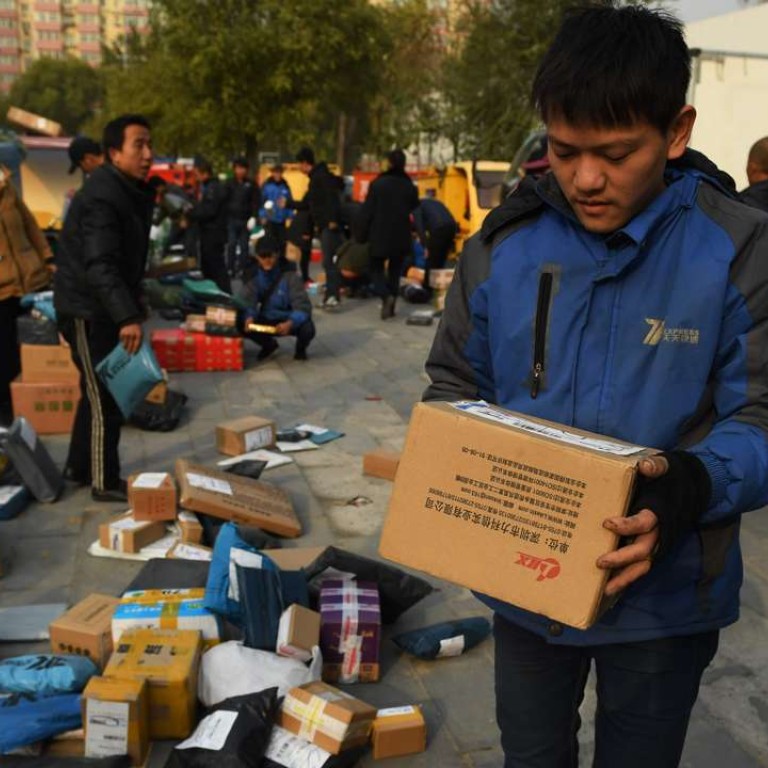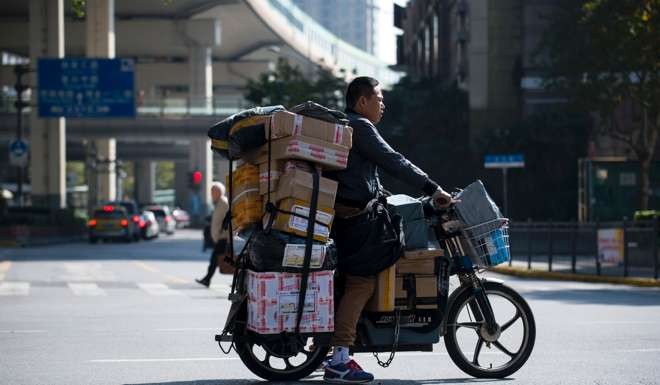
China’s rural population major new growth market for online automobile sales, Alibaba says
Online platforms can provide the financing and after-sale services to help boost car sales among remote areas, e-commerce giant says
Alibaba Group’s auto unit is seeking to expand online automotive sales in rural areas, opening the doors to a huge market for carmakers amid slowing sales in first tier cities.
Rural residents were busy filling their shopping carts during the just-ended Single’s Day shopping festival with a wide variety of products from daily necessities such as apparel, home appliances or even cars.
Sanfeng village, in Xinchang county of Zhejiang province, is one of the top three highest-spending villages during Single’s Day this year, according to Alibaba. One local spent 400,000 yuan (HK$453,000) to buy a BMW car, becoming the most valuable single transaction of the day in the village, the Qianjiang Evening News said, citing a rural Taobao partner Ye Lu.
The e-commerce company started its rural strategy in 2014 turning some countryside areas into Taobao villages. These are a cluster of online retailers within an administrative village, representing 10 per cent of households -- or at least 100 active online shops -- with a collective annual online revenue of at least 10 million yuan.
Wang Licheng, general manager of Alibaba’s automotive division said car sales growth is slowing in first and second tier cities, while carmakers are looking to expand online channels to tap customers in lower tier cities and in rural areas.
With the rising internet penetration and the use of mobile devices, more rural residents are accustomed to shopping online, becoming a new force to drive e-commerce.
The potential of auto e-commerce is huge. Alibaba said as many as 100,000 vehicles by dozens of carmakers were sold during the one-day shopping festival on its e-commerce platforms Taobao and Tmall, compared with about 6,700 cars sold last year.

Autohome, a leading automotive website operator, said customers placed orders for 134,225 cars worth 19.7 billion yuan on its e-commerce platform on Single’s Day. And its counterpart, Bitauto, said the number of orders was 138,970 cars valued 21.2 billion yuan.
However, as many rural areas are outside of automotive dealership networks, the lack of after sales services and auto financing are obstacles for auto e-commerce platforms, Wang said.
Some carmakers and dealers have turned to auto financing to attract buyers. On the back of big data under Ant Financial, Alibaba’s financial affiliate, the automotive platform is able to provide quick auto loan approvals, offer interest free rate auto loans and payment by instatements, he said.
Without credit records, some rural residents may struggle to get loans, a problem that’s been a major hurdle for young buyers, he said.
“For interest free auto loans, the interests are subsidised by carmakers which would rather not offer big discounts or slash prices,” Wang said.
Since partnering with Chinese dealership group Harmony a year ago, Alibaba’s automotive unit has expanded its physical car services network Car Port.
Wang said the company plans to more than double the number of Car Port outlets to 3,000 early next year and further increase to 20,000 in 2018 covering 28,000 towns, counties and villages.
Rural residents can order vehicles and parts online for shipment to Car Port outlets, which will become service hubs, he said.
“While moving to the next stage, we want car sales services available through the Car Port network. Rural residents can order cars directly online, and the cars will be sent to Car Port’s outlet,” he said.
Alibaba is the owner of South China Morning Post.

